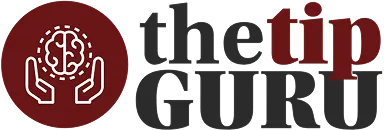Job interviews can bring on a mix of excitement and anxiety. Even the most qualified candidates feel those pre-interview jitters! But being nervous doesn’t mean you’re not prepared; it means you care. The key is learning how to manage that energy and channel it into confidence. With the right mindset and strategies, you can walk into any interview feeling grounded, ready to connect, and fully capable of showing why you’re the right person for the role.
Prepare With Intention, Not Perfection
Winging an interview rarely works. Take time to research the company, understand the role, and study the job description. Familiarize yourself with the organization’s mission, values, and recent news. Think about how your skills and experiences align with what they’re looking for. Preparation builds confidence because it gives you clarity, and clarity cuts through nerves.
That said, don’t aim for word-for-word perfection. Focus instead on key themes you want to communicate. Prepare stories that highlight your strengths and results using frameworks like STAR (Situation, Task, Action, Result). The more natural and conversational your delivery, the more you’ll connect—and the less likely you’ll freeze under pressure.
Practice Answering Common Questions
Certain questions come up in nearly every interview: “Tell me about yourself,” “What are your strengths and weaknesses?” or “Why do you want this job?” Practice these out loud until your responses feel authentic and fluid. It’s not about sounding rehearsed, it’s about being clear, confident, and concise.
Mock interviews with a friend or mentor can be especially helpful. If you’re nervous, practicing can help you reduce filler words, manage your tone, and identify areas where you tend to ramble or go off-topic. The more you practice, the more prepared you’ll feel when the real questions come your way.
Manage Nerves With Grounding Techniques
Feeling nervous is completely normal but learning how to regulate your nerves can make all the difference. Try deep breathing exercises before the interview to slow your heart rate and calm your body. Visualize yourself succeeding: smiling, answering clearly, and making a strong impression. These mindset shifts help replace anxiety with focus.
Also, manage what’s within your control. Choose a quiet space for the interview, test your tech if it’s virtual, and arrive early if it’s in person. Drink water, take a few grounding breaths, and remind yourself: you’re not here to be perfect—you’re here to be you. Confidence doesn’t mean you’re not nervous; it means you show up anyway.
Ask Thoughtful Questions That Show You Care
At some point, the interviewer will ask if you have any questions—and this is your moment to shine. Asking thoughtful, specific questions shows that you’re genuinely interested in the role and have done your homework. It also shifts the dynamic from one-sided evaluation to meaningful conversation.
Ask about team dynamics, company culture, or what success looks like in the role. Questions like “What does a typical day look like?” or “What are the biggest challenges someone in this role might face?” show initiative and curiosity. Great questions leave a lasting impression and help you gather the insight you need to decide if the job is the right fit for you.
Don’t Be Afraid to Highlight Your Wins
Many people downplay their accomplishments out of fear of sounding boastful but interviews are your time to show what you bring to the table. Talk about your wins with pride and context. Use examples that showcase real impact, like how you improved a process, led a project, or exceeded a goal.
Framing your accomplishments with humility and confidence is key. Instead of just listing tasks, focus on outcomes and what you learned. Interviewers want to know how you’ll contribute, so don’t shy away from telling your story. You’ve worked har, let that shine through in a way that feels grounded, authentic, and aligned with the role.
Follow Up With Gratitude and Intent
After the interview, send a personalized thank-you email within 24 hours. Express appreciation for the opportunity and mention something specific you enjoyed discussing. A thoughtful follow-up helps you stand out and shows that you’re professional, enthusiastic, and genuinely interested in the position.
It’s also an opportunity to reinforce why you’re a strong fit for the role. Keep it brief but intentional. Even if you’re nervous about how the interview went, following up with warmth and gratitude leaves a positive final impression—and it keeps the door open for continued communication.
You’re More Ready Than You Think
Interviews may feel intimidating, but they’re really just conversations about possibility. With preparation, perspective, and practice, you can move from anxious to assured without needing to be perfect. You’ve done the work, you know your worth, and you’re capable of showing up with clarity and confidence. Every interview is a chance to learn, grow, and move closer to the career you want. So take a deep breath—you’ve got this.

